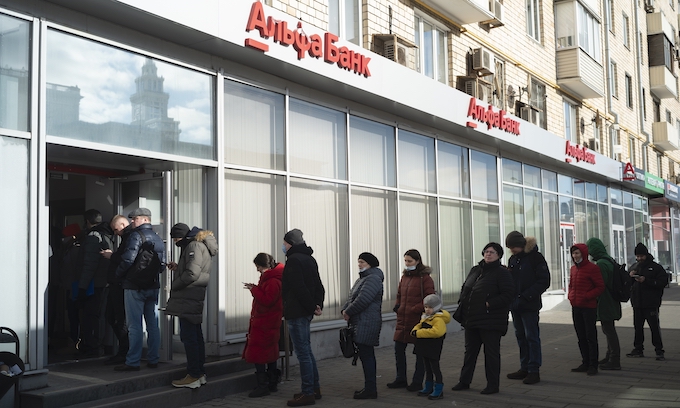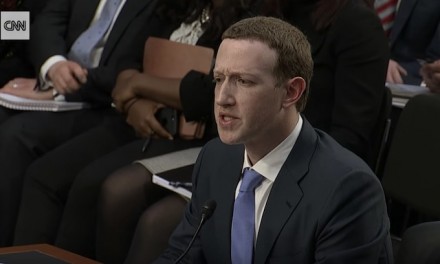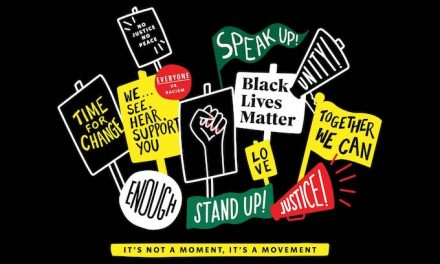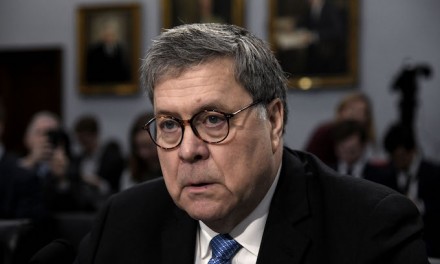Moscow, Mar 24 (EFE).- One month after Russian president Vladimir Putin ordered a full-scale invasion of Ukraine, life in Russia is like never before.
Unprecedented Western sanctions on Russia have crippled the economy, the country faces a shortage of medicine and other basic supplies, laws against freedom of speech have been introduced and numerous social networks have been blocked.
This is the unprecedented “new reality” in Russia since February 24.
But while Putin’s popularity is around 80%, a quarter of a million Russians have chosen to flee the country, according to independent sources.
SANCTIONS AND THE ECONOMY
Putin has called the numerous packages of fresh sanctions against Russia that have isolated the country and its economy from the rest of the world a “blitzkrieg”.
The European Union has excluded Russian banks from the SWIFT messaging system while Russian gold and currency reserves abroad have been frozen.
The United States and EU have also closed their airspace to Russia, which responded by closing its airspace to Western airlines.
Sanctions have hit almost every sector of the Russian economy, including oligarchs who support the Kremlin with assets in the West.
But while it is the rich that were initially hit by sanctions, it is the ordinary Russians who will feel their effects in the long term, with inflation already up 12%.
Almost 60,000 Russians have lost their jobs due to sanctions and Western brands such as Apple, Ikea, Lego, Volkswagen and Inditex suspending operations in Russia, according to the government.
SOCIAL NETWORKS AND MEDIA
After slowing down Twitter and fining tech giants for their support of the democratic opposition, the Russian judiciary banned Facebook and Instagram this week.
The move came after their parent company, Meta, refused to remove calls for violence against Russians, including the military.
The Kremlin also introduced on March 4 a new law that sentences journalists that report “fake news” about the Russian military in Ukraine with up to 15 years in prison.
All Russian media are prohibited from using the words “war, invasion” or “aggression” to refer to what the Kremlin refers to as the “special military operation” in Ukraine.
Authorities also closed down two of the last independent media outlets in Russia.
The only source of information left in Russia is state television and the ministry of defense, which has not reported any casualties in its ranks since March 2.
SHORTAGE OF MEDICINE AND FOOD
One of the first indirect impacts the Russian people felt after the invasion of Ukraine was the shortage of medicine across pharmacies.
Although the government had banned foreign drug shipments to Russian territory, the current crisis demonstrates Russia’s pharmacological industry’s dependence on Western components.
Authorities have played down the crisis but a survey carried out by local press found that over 80 drugs are out of stock.
French pharmaceutical Sanofi was the last to suspend the supply of non-vital medicines to Russia.
The shortage extends to supermarkets, where there is a shortage of basic products such as sugar, toilet paper, “grechka” or buckwheat, a staple in Russia.
In addition, as the demand for basic products has spiked, prices have skyrocketed. EFE
© 2022 EFE News Services (U.S.) Inc.
—-
This content is published through a licensing agreement with Acquire Media using its NewsEdge technology.



















So.. Why should we care.
I feel sorry for the Russian people who have to suffer because of their governments decisions but if they want to change things, they will have to have the courage to speak up. We are pretty much going through the same thing because of our governments decisions, but at least we still have the opportunity to speak up. The media has not been able to completely quiet us yet. It looks like we are getting more like the Russians everyday. They throw their protesters in jail and we have jailed the Jan. 6 protesters. The BLM protesters may have been jailed initially but were immediately let out. The Jan. 6 protesters are still sitting in prison with no charges and no trials being held. We have to speak louder.
Yes, I’m not seeing much difference in the govts of so-called democracies & those of dictatorships.
There is now only a state controlled media in Ukraine just like in Russia, China & other dictatorships.
USA under Dem Party is operating as a dictatorship & has already succeeded in creating a state controlled majority media to gaslight & spread their propaganda.
There is only one small media outlet left, OAN, that provides objective factual news on all its programming & it is being forced off the airwaves.
Fox basically only has Tucker Carlson to provide fact based news & question the motives & decisions of govt & the powers that be are trying to get him off the air also.
So even without being subjected to a military invasion our politicians in both parties have led us into dehumanizing oppression, censorship, rampant crime & restriction of our basic rights based on our race, biological gender & especially our & every other nation’s need for affordable reliable energy to continue to exist, which for next 50-100 years will only be available from fossil fuels or nuclear.
PLUS we have big tech literally DOING THE BIDDING of the commucrats in office, by silencing all the opposition they can… Even as i saw the other day, going so far as to (paypal)< CANCEL THE ACCOUNT of someone, for something they did NOT EVEN ON YOUTUBE, but youtube pressured paypal to nix their account…
So they're not only wanting to silence what we say ON LINE. BUT Everywhere else too..